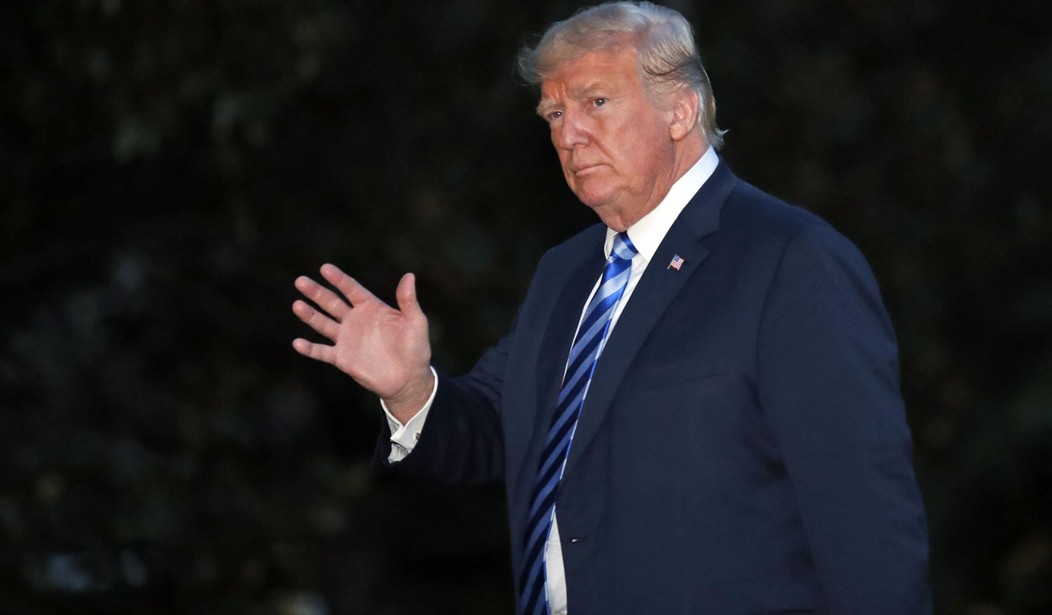From the first day Donald Trump started running for president, he has raged against America's large and persistent trade deficit. His tariff policies are designed to try to reduce these trade imbalances. It is the metric he uses to gage whether other nations are playing by the rules of our trade deals. As a pure economic accounting measure, the U.S. GDP goes down when we import and goes up when we export.
I have suggested to Trump that what matters most is the overall volume of trade, not the trade deficit. But Trump is right that if he can induce foreigners to buy more of our made-in-America products -- our cars, soybeans, wheat, cotton, technology, bourbon and baseball products -- this would greatly benefit American workers and businesses.
But Washington is ignoring one easy way to trim the trade deficit without new tariff threats or complicated trade deals that could take years to consummate. Get more foreigners to travel to the United States and buy things here.
Recently, I met with officials from the U.S. Coalition -- which is made up of owners of businesses such as hotels, restaurants, airlines, amusement parks and shopping centers -- and they alerted me to this lost opportunity. The number of international tourists to these shores has fallen by about 7.5 million people since 2016. This trend didn't start under Trump. Prior to 9/11, the U.S. was the destination for about 1 in 6 international trips, but now we are the destination for about 1 in 8. More people travel to Spain in a year than the United States. Is that a tear rolling down Honest Abe's cheek on his memorial?
The travel industry economists calculate that this decline has reduced foreign purchases of American goods and services by some $32 billion. They estimate about 100,000 fewer jobs have been created as a result of fewer tourists arriving from abroad.
Recommended
What does this have to do with the trade deficit? When a foreigner comes to the United States and buys goods and services here with money that was earned overseas, this lowers the trade deficit. So getting foreigners to visit Disney World, Pebble Beach, Yosemite or Manhattan at the rates they once did could lower our deficit by $32 billion. It's hard to see how tariffs could accomplish that.
So why aren't the Brits, Germans, Japanese and Chinese coming in the numbers they used to? And why is it that even as international travel is up worldwide, America's share of the tourism traffic is falling?
There are three likely explanations. First, the dollar has strengthened, which makes it more expensive to travel to and shop in America. Second, the U.S. customs and immigration enforcement has made it more difficult to come into the country, in order to keep terrorists and other bad actors out. And third, many foreigners don't like Trump and his policies, so they spurn coming to America.
There isn't a lot we can do about the first factor. The dollar is strong because the U.S. economy is roaring. Certainly, we don't want to try to get rich by weakening the dollar. That would be a fool's errand.
But expediting entry into the U.S. can and should help reduce hassles for families and business travelers. This is tricky, because we don't want to allow criminals, terrorists or drug runners to slip through the cracks. But customs and immigration enforcement need to better target potential troublemakers.
As for the so-called "Trump Slump" in tourism, the president could reverse this effect. He could issue public service announcements that lay out the welcome mat for foreign travelers. The travel industry itself needs to do a better and more comprehensive job marketing America and our natural and manmade wonders.
When it comes to commerce, Trump has emerged as a highly effective one-man chamber of commerce, selling America to investors. He has announced to the world that America is open for business. Now he needs to persuade foreigners that America is open for tourism. This might be the best way to win these trade wars.

























Join the conversation as a VIP Member